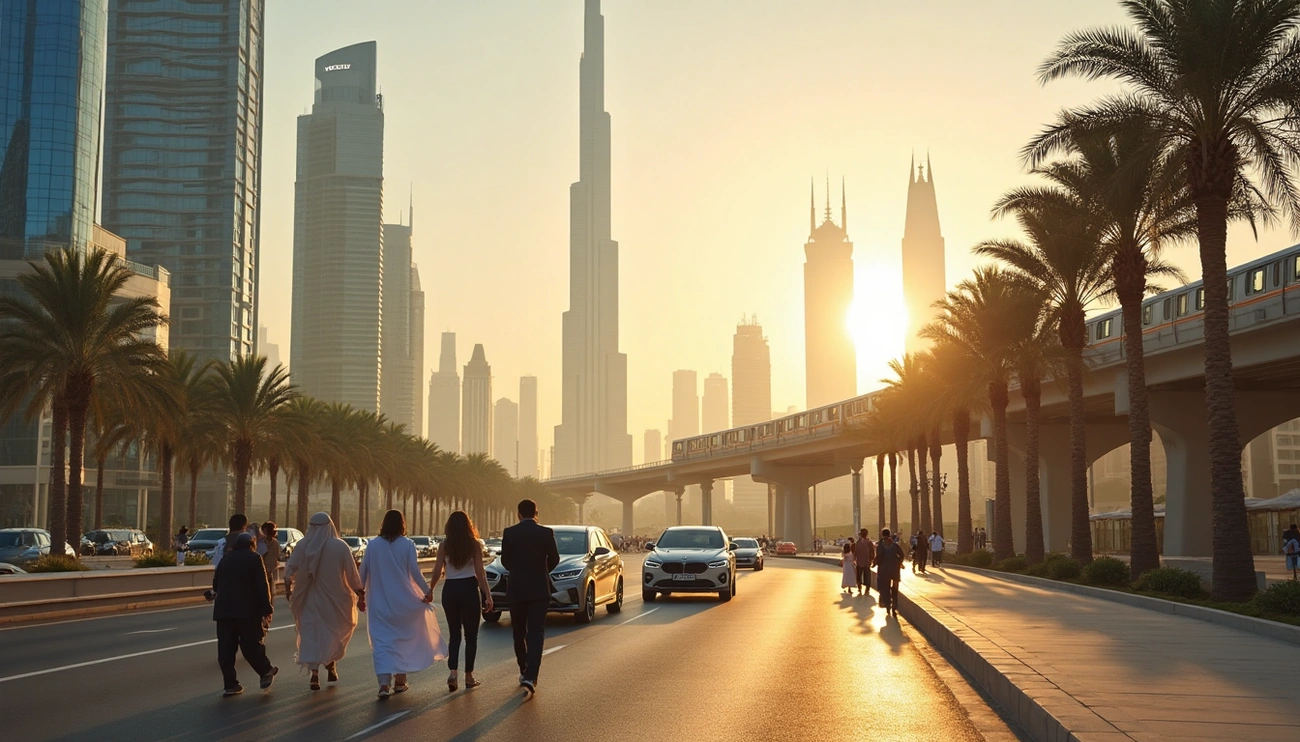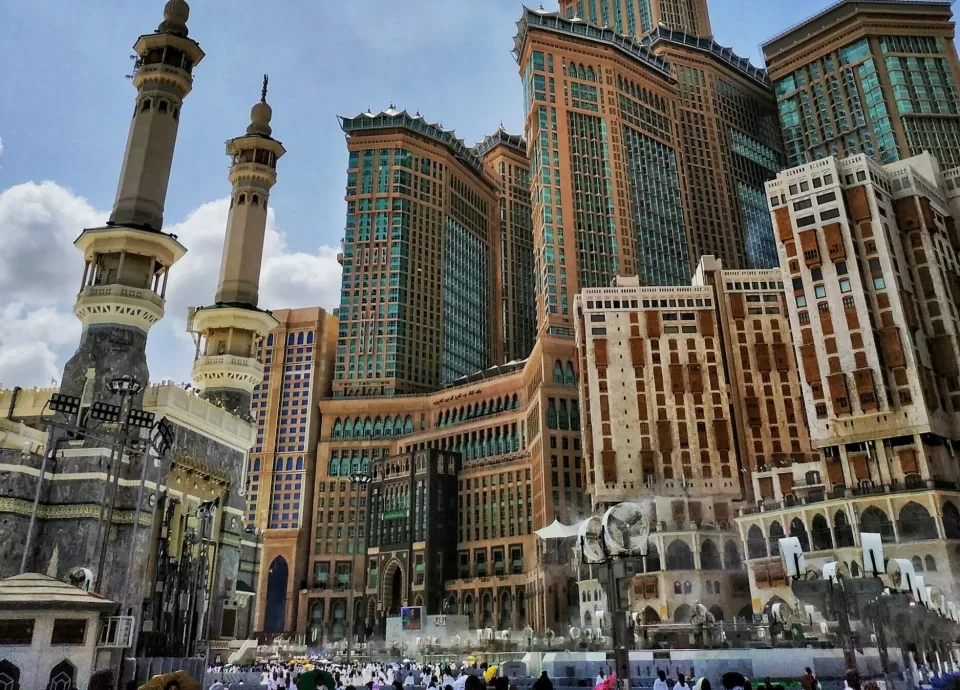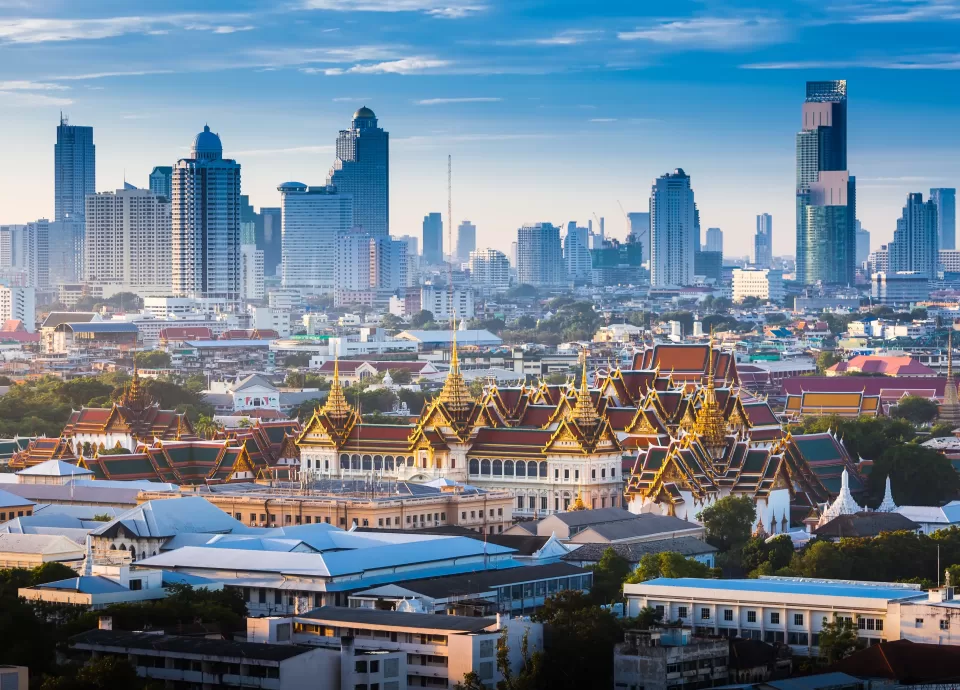Planning a move in the UAE? Discover 7 important things to consider before hiring a moving company. From reliability and cost to storage options and professional support, these tips help you choose trusted movers and ensure a smooth, stress-free relocation for your family or business.
What Life in Dubai Is Really Like
Beyond the gleaming skyscrapers and tax-free salaries, life in Dubai presents a fascinating blend of traditions and modernity that requires understanding and adaptation. With more than 200 nationalities calling this city home, relocating to Dubai means immersing yourself in one of the world’s most diverse urban environments.
Cultural diversity and social norms
Despite its rapid development, only 15% of Dubai’s inhabitants are Emirati nationals, creating a cosmopolitan atmosphere where expats often outnumber locals. This diversity, however, exists within a framework of Islamic traditions and cultural norms that govern daily life.
When settling in Dubai, understanding social etiquette is crucial. Public behavior follows stricter guidelines than in Western countries. Notably, dress modestly in public areas—women should cover shoulders and knees, while men should avoid overly casual attire in formal settings. Furthermore, public displays of affection, even between married couples, are frowned upon and can lead to legal consequences.
During Ramadan, non-Muslims must refrain from eating, drinking, or smoking in public during daylight hours. This annual observance typically lasts a month and affects daily routines throughout the city, including business hours and social activities.
Alcohol consumption follows specific regulations—it’s only available in licensed hotels, restaurants, and bars. Being publicly intoxicated is illegal and can result in fines or imprisonment. Additionally, photography of people without permission is prohibited, reflecting the high value placed on privacy in Emirati culture.
Climate and lifestyle expectations
Dubai’s climate significantly shapes the expatriate experience, with two distinct seasons dictating lifestyle patterns. Summer, lasting from late April to early October, brings extreme temperatures frequently exceeding 38°C and occasionally reaching as high as 50.1°C (as recorded in July 2023). During these months, humidity levels rise dramatically, making outdoor activities challenging.
In contrast, winter (late October to mid-April) offers pleasant weather with daytime temperatures ranging between 14°C and 24°C, making it ideal for outdoor pursuits. This seasonal rhythm creates two different lifestyles for expats:
- Summer living: Air-conditioned indoor activities dominate, from shopping malls and restaurants to entertainment venues
- Winter living: Outdoor dining, beach activities, desert safaris, and community events flourish
The cost of living has risen significantly in recent years. Dubai is now the Middle East’s most expensive city for international employees, ranking 15th globally. Property prices have increased dramatically, with villa rents nearly doubling and apartment prices rising by 66%, forcing many expats to consider commuting from neighboring emirates.
Safety and legal considerations
One of the primary benefits of living in Dubai for expats is its exceptional safety. The crime rate is remarkably low, largely due to strict laws and effective enforcement. These same laws, nevertheless, require careful navigation by newcomers.
The UAE’s legal system is rooted in Islamic principles, with implications for personal conduct. Swearing, making offensive gestures, or displaying disrespectful behavior can lead to fines or even imprisonment in serious cases. Financial responsibility is taken extremely seriously—unpaid debts, including bounced checks, can result in legal problems.
For those relocating to Dubai, understanding that religious and cultural respect isn’t just courteous but legally required represents an essential tip for living in Dubai successfully. Consequently, familiarizing yourself with local customs before arrival helps ensure a smooth transition into this dynamic but traditionally-minded society.
Choose Where and How to Live
Finding the perfect place to call home is one of the most critical decisions when relocating to Dubai. With numerous neighborhoods and housing options available, your choice will significantly impact your quality of life and budget.
Top neighborhoods for different lifestyles
Dubai’s residential landscape offers diverse options catering to various preferences and budgets. For those seeking an upscale urban lifestyle with access to premier dining and shopping, Downtown Dubai stands as an iconic choice, featuring luxury properties with high-end amenities.
If waterfront living appeals to you, Dubai Marina remains among the most popular expat communities, offering stunning high-rise towers with marina views and a bustling promenade. The area provides excellent access to major business hubs like Dubai Media City and Dubai Internet City, making it ideal for professionals.
Families often gravitate toward Arabian Ranches, consistently rated among Dubai’s top family-oriented communities. This suburban neighborhood features townhouses and villas amid lush greenery, centered around the Arabian Ranches Golf Course.
For budget-conscious expats, Jumeirah Village Circle (JVC) presents one of the best value-for-money options in Dubai. With rents for 1-bedroom units ranging from AED 60,000 to AED 90,000 annually, JVC offers affordability without sacrificing amenities. The area boasts approximately 33 landscaped parks, perfect for outdoor activities.
Renting vs buying property
When deciding whether to rent or buy in Dubai, several factors merit consideration. For short-term residents, renting typically involves lower upfront costs than purchasing property. Tenants benefit from maintenance being the landlord’s responsibility and enjoy greater flexibility to relocate.
Conversely, buying property offers long-term advantages, particularly for those planning to stay at least five years. Homeownership allows you to build equity, customize your living space, and potentially benefit from property appreciation.
The financial comparison is striking: purchasing a 1-bedroom apartment in Dubai Marina costs approximately AED 1.58 million. The initial expenses include a 20% down payment (AED 316,200), Dubai Land Department fee (AED 63,820), agent fees (AED 33,201), and various other charges, totaling around AED 439,973.50 upfront.
For rental properties, budgeting extends beyond the annual rent. First-time renters should prepare for security deposits (5% for unfurnished, 10% for furnished properties), agency fees (5% of annual rent), plus DEWA connection charges and municipality fees.
Understanding lease terms and Ejari
Ejari, meaning “my rent” in Arabic, is Dubai’s mandatory tenancy contract registration system administered by the Real Estate Regulatory Agency (RERA). This online program regulates the real estate lease process, protecting the rights of both tenants and landlords.
Registration through Ejari is legally required for all rental agreements. The process involves submitting documentation including passport copies, trade licenses (for company tenants), and verification of property ownership. The tenant typically bears the AED 120 registration fee.
Beyond initial registration, Ejari offers services for lease renewals, cancelations, and terminations. Important to note is that without Ejari registration, you cannot connect essential utilities through DEWA. Moreover, delayed registration may result in fines up to AED 50,000.
For long-term stability, leases can range from one month to five years. Foreign nationals should be aware that leases exceeding 10 years are registered differently from shorter-term agreements and involve more complex legal considerations.
Handle Legal and Financial Setup
Securing your legal status and setting up finances are essential first steps when relocating to Dubai. These administrative foundations ensure a smooth transition into your new life in the Emirates.
Visa types and how to apply
Residing legally in Dubai requires obtaining the appropriate visa. Entry permits are initially valid for 60 days, during which you must complete your residence visa application. For standard and green residence visas, entry permits remain valid for two months, while golden visa applicants receive six-month multiple-entry permits.
The UAE offers residence visas ranging from 1 to 10 years depending on your circumstances. As an expat, your most common options include:
- Employer-sponsored work visa
- Property investor visa
- Business owner visa
- Family sponsorship visa (for spouses and children)
- Student visa (valid for 5 years)
Following recent policy changes, expats with a minimum monthly salary of AED 4,000 can sponsor their family members regardless of profession. Remember that staying outside the UAE for more than 180 days continuously typically results in automatic visa cancelation unless you fall under specific exemption categories.
Opening a bank account in Dubai
A local bank account is fundamental for daily life in Dubai, especially for receiving salary payments and handling routine expenses. Although you’ll need a residency visa to open a full-featured account, several banks offer preliminary services for newcomers still awaiting their Emirates ID.
When applying, prepare these essential documents:
- Valid passport
- UAE residency visa
- Emirates ID (or registration form if still processing)
- Proof of residence (utility bill or rental agreement)
- Salary certificate or employment letter
Many banks impose minimum balance requirements, with maintenance fees typically ranging from 0 to 26.25 AED if these thresholds aren’t maintained. Fortunately, most institutions offer online banking and mobile apps, making day-to-day financial management straightforward after setup.
Understanding local taxes and fees
One major advantage when settling in Dubai is the absence of personal income tax. Likewise, there are no wealth, inheritance, capital gains, or property taxes. This tax-free status attracts professionals worldwide and substantially increases take-home pay compared to many other countries.
Nevertheless, be aware of indirect taxation. Since 2018, the UAE has implemented a standard 5% Value Added Tax (VAT) on most goods and services. Additionally, excise duties apply to specific products—100% on tobacco and energy drinks, and 50% on carbonated beverages.
Other common expenses include a 5% housing fee for expat tenants (calculated on annual rent and added to monthly DEWA utility bills), and municipality fees on hotel stays and restaurant bills within hotels. For property buyers, expect a 4% transfer tax when purchasing real estate.
Understanding these financial aspects thoroughly will help you budget accurately while enjoying Dubai’s otherwise favorable tax environment.
Get Settled with Daily Essentials
After securing housing and handling legal requirements, mastering daily essentials is the next crucial step when settling in Dubai. These practical matters form the foundation of your everyday experience in the emirate.
Healthcare system and insurance
Healthcare in Dubai operates through both public and private sectors, with an estimated 85% of residents being expatriates. Since 2014, health insurance has become mandatory for all Dubai residents. For working expats, employers must provide basic health insurance coverage, although this requirement doesn’t extend to dependents.
The Essential Benefits Plan (EBP) serves lower-income workers earning under AED 4,000 monthly, costing approximately AED 750 per year. This plan covers medical care up to AED 150,000 annually. For comprehensive coverage, many expats opt for supplemental insurance that includes dental, vision, and mental health services, as these are typically excluded from basic plans.
Importantly, maternity coverage is mandatory for all married women under valid health insurance policies in Dubai.
Transportation options and costs
Dubai boasts an efficient public transport system that includes metro, busses, trams, and water taxis. The Dubai Metro—the world’s longest driverless metro spanning nearly 75 km—serves as the backbone of this network.
The entire transportation system operates on a zone-based fare structure, with Dubai divided into seven zones. Payments are made via NOL cards, which come in several types:
- Silver (pre-paid standard): AED 3-7.50 per trip depending on zones traveled
- Gold (premium class): AED 6-15 per trip
- Blue (concessionary): AED 1.50-3.75 per trip
When comparing transportation costs, a monthly NOL card for three zones costs approximately AED 350. In contrast, driving your own vehicle between similar locations could cost around AED 103-200 monthly for fuel alone, plus maintenance expenses of AED 1,000-1,500.
Setting up utilities and internet
To establish utility connections in Dubai, you must first register your rental contract with EJARI. Subsequently, Dubai Electricity and Water Authority (DEWA) creates your account automatically and emails you the details.
Setting up DEWA requires a refundable security deposit—AED 2,000 for apartments and AED 4,000 for villas. The activation fee is AED 130 plus VAT, which includes connection, registration, and innovation fees.
For internet and telephone services, two primary providers exist: Etisalat and du. Both offer various packages including high-speed fiber optic internet and TV options. To establish these services, you’ll need your Emirates ID, tenancy agreement, and possibly a utility bill.
Integrate and Thrive as an Expat
Successfully integrating into Dubai’s society goes beyond finding a home and setting up finances. Building a meaningful life as an expat requires educational planning, community connections, and cultural understanding.
Finding schools and education options
Dubai hosts 171 international schools offering diverse curricula including British, American, IB, French, Swiss, and Indian. This variety exists because international schools can follow their homeland curricula while operating under Dubai’s Ministry of Education and KHDA supervision.
Premium institutions like Nord Anglia International School attract students from 91 nationalities, while annual fees range significantly—from AED 14,000 at more affordable schools to AED 132,905 at prestigious establishments like North London Collegiate School.
School quality is officially measured through KHDA ratings, from “Outstanding” to “Weak”. Top-rated institutions include GEMS Wellington International School, Dubai College, and Jumeirah English Speaking School, whose graduates frequently attend elite universities worldwide.
For families with young children, note that popular nurseries often have waiting lists extending up to two years.
Joining expat communities and events
InterNations Dubai stands out as a premier platform for expats, organizing regular meetups and interest-based groups. These gatherings address practical matters like healthcare and financial planning while fostering connections.
Other notable groups include Dubai Expat Meetup Group, Dubai Expat Women, and Dubai International Social Club. Weekly events range from professional networking to recreational activities—Saturday football matches, language exchange clubs, and cultural outings appear regularly on community calendars.
Learning basic Arabic and local etiquette
Though English is widely spoken, attempting basic Arabic phrases earns local respect. Start with “as salam alaykum” (peace be upon you) and respond with “walaykum as-salam” rather than “hello”. “Shukran” (thank you) proves equally useful in daily interactions.
For formal language education, several institutions offer structured programs:
- Arabic Language Center (ALC)—teaching Arabic to non-speakers for 45 years
- Eton Institute—focusing on Modern Standard Arabic
- Free options like Al Qasimia University’s “Mubeen” online platform
Remember that Dubai’s multicultural society values tolerance and mutual respect, making cultural adaptation essential for those relocating to Dubai.
Conclusion
Moving to Dubai offers a unique blend of opportunities and challenges that require careful planning and cultural sensitivity. After all, relocating to this dynamic city means embracing both its ultramodern lifestyle and traditional values. Throughout this guide, we’ve covered essential aspects that will help you navigate your new life successfully.
The financial landscape certainly presents attractive benefits like tax-free income, though balancing this against housing costs, school fees, and other expenses remains crucial for sustainable living. Additionally, understanding the legal framework—from visa requirements to banking regulations—forms the foundation for a smooth transition.
Finding your ideal neighborhood significantly impacts your Dubai experience. Whether you prefer the bustling energy of Downtown Dubai or the family-friendly atmosphere of Arabian Ranches, your housing choice shapes daily life and financial commitments. Most importantly, respecting local customs and laws ensures you avoid unnecessary complications while building positive relationships.
Dubai’s exceptional safety, world-class healthcare, and efficient transportation system undoubtedly enhance quality of life for expatriates. The city’s international schools offer excellent education options, though planning ahead for admission remains essential given waiting lists at popular institutions.
Learning basic Arabic phrases, connecting with expat communities, and adapting to seasonal lifestyle changes will help you feel at home faster. Despite initial adjustment challenges, many expats find Dubai’s unique combination of global opportunity and Middle Eastern heritage creates an unparalleled living experience.
Your Dubai journey begins with practical preparations but ultimately transforms into a rich cultural adventure. The city rewards those who approach it with respect, adaptability, and openness to new experiences. With proper planning and the right mindset, your transition to life in this remarkable emirate can be both rewarding and successful.




